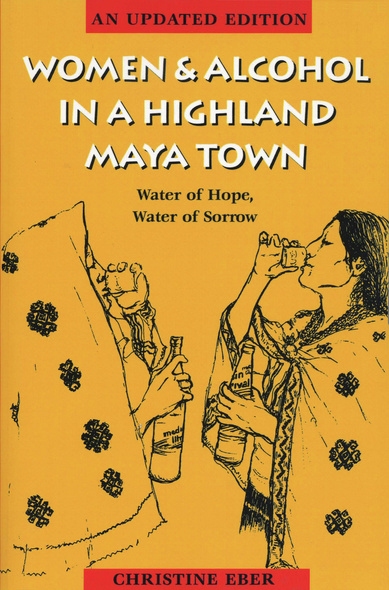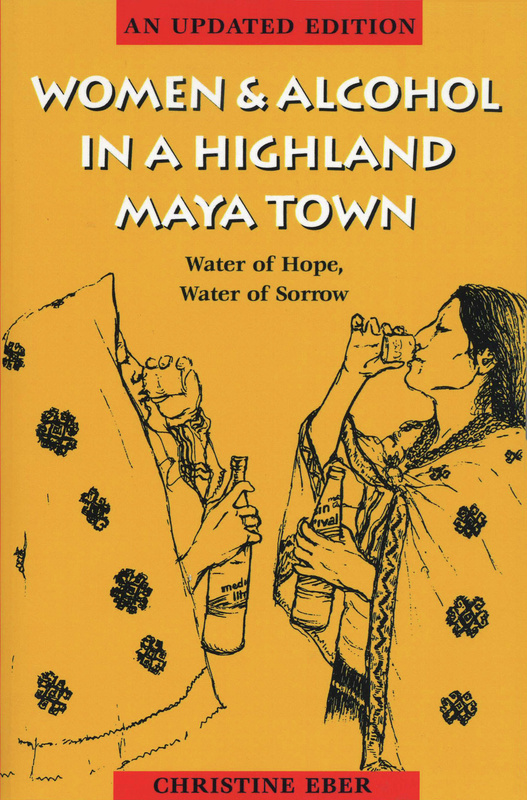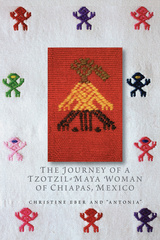Women and Alcohol in a Highland Maya Town
Water of Hope, Water of Sorrow
Healing roles and rituals involving alcohol are a major source of power and identity for women and men in Highland Chiapas, Mexico, where abstention from alcohol can bring a loss of meaningful roles and of a sense of community. Yet, as in other parts of the world, alcohol use sometimes leads to abuse, whose effects must then be combated by individuals and the community.
In this pioneering ethnography, Christine Eber looks at women and drinking in the community of San Pedro Chenalhó to address the issues of women’s identities, roles, relationships, and sources of power. She explores various personal and social strategies women use to avoid problem drinking, including conversion to Protestant religions, membership in cooperatives or Catholic Action, and modification of ritual forms with substitute beverages.
The book’s women-centered perspective reveals important data on women and drinking not reported in earlier ethnographies of Highland Chiapas communities. Eber’s reflexive approach, blending the women’s stories, analyses, songs, and prayers with her own and other ethnographers’ views, shows how Western, individualistic approaches to the problems of alcohol abuse are inadequate for understanding women’s experiences with problem and ritual drinking in a non-Western culture.
In a new epilogue, Christine Eber describes how events of the last decade, including the Zapatista uprising, have strengthened women's resolve to gain greater control over their lives by controlling the effects of alcohol in the community.
Women and Alcohol is a book worth reading.... The book’s informal tone and interesting topic make it appealing to a wide audience, including casual readers and undergraduate classes. Furthermore, Eber’s cross-cultural insight into alcohol dependency is relevant not only for anthropologists but also for health care professionals and others who deal with substance abuse.
In this well-written ethnography, Christine Eber weaves together the critical issues of gender relations, religious change, domestic violence, and drinking in highland Chiapas.... This is a fine ethnography that is a must-read for all interested in gender relations in contemporary Latin America. It is also one of the best current discussions on the little-studied phenomenon of religious change in Mexico.... Eber also provides a wonderful model of how to write a readable ethnography that treats its subjects with dignity and respect and honestly integrates the trials and tribulations of the ethnographer in the process.
Christine Eber is Professor Emerita of Anthropology at New Mexico State University.
- List of Major Characters
- Acknowledgments
- On Translations and Aids to Reading This Book
- Preface
- 1. Frameworks and Methods
- 2. The Time of Suffering: Pedranos, Ladinos, and Rum
- 3. I Have Come: Crazy February
- 4. Making One's Soul Arrive: Child Rearing and Household Relations
- 5. "Before God's flowery face": The Feast of St. Peter
- 6. "Now I am going like a branch and its leaves": Drinkers and Their Families
- 7. Water of Hope, Water of Sorrow: A Processual Framework on Drinking
- 8. "Beneath God's flowery hands and feet": Shamans' Cures for Problem Drinking
- 9. "It's time to change": Mestizoization and Drinking
- 10. "For ye are bought with a price": Traditions, Religions, and Drinking
- 11. "Today we say: Enough!": New Voices, New Collective Action
- 12. Conclusion
- List of the Martyrs at Acteal
- Epilogue
- Appendices
- A. Traditional Pedrano Gods
- B. Non-Traditional Healing in Chenalhó
- C. Brief History of Presbyterianism in Chenalhó
- D. Revelation 21:3-8
- Notes
- Glossary
- References
- Index
- Index of Major Characters






